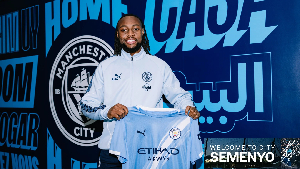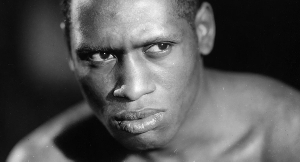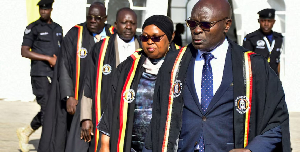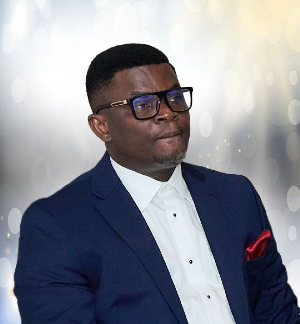When Ghana achieved independence a half century and five years ago, a lot was expected of her—by her own leaders as well as the rest of the world. Nkrumah declared impatiently that “we shall achieve in a decade what has taken others a century to achieve.” He said that Ghana was engaged in a quest to prove to the world that “the black man is capable of managing his own affairs.” On his part, Danquah wanted us to build a “property-owning democracy.” True to his word, Nkrumah set us off at a brisk pace towards industrialization, infrastructural development, the total liberation of the African continent and the emancipation of the African. To be fair, there were a few gargantuan mistakes—like the one-party state, dictatorship and Preventive Detention. But by and large, Nkrumah, Danquah and those of that generation left no doubt that they expected a lot of this country. Regardless of the mistakes, there was hope in the air. The Ghanaian believed that he was capable of anything.
Today, the nation that they gave birth to—the hope of the black race is at a cross-road. The question is this: If Nkrumah and Danquah took a trip back, on the occasion of our independence anniversary, what would be their verdict? Today, many will assert that Ghana is doing better than many African countries and they would be right.
We have death rates that are not as terrible as others. We have streets that are not as dirty or as dark as others. We have criminals who are not as brutal as others. We have not had as many coups as others. We have election violence but not civil wars. We have a national team that has managed to reach the quarter-finals of a world –cup, like a few others.
And so on. According to the argument, it is unfair to hold ourselves to higher standards. In the eyes of those making this minimalist argument, it is unfair to compare ourselves to Singapore or Malaysia or South Korea. The comparison, really, according to the minimalists, should be to Nigeria, Congo, Guinea, Ivory Coast and their ilk. To give our minimalists some solace and assuage their imperialist consciences, every few years, as if on cue, the Breton-Woods institutions will pronounce our economies as exemplary and pat our leaders on the back about how well we are doing. Then a few years later, right in sync with a new government, they will pronounce our economy as failed. Like good citizens of a colony or neo-colony, we believe both their praises and their condemnations with equal fervor.
But that precisely is our problem. This redefinition of success from being the best to not being the worst—this loss of faith in ourselves, our country and who we are meant to be. Nkrumah et al never conceived of this nation as a nation that would struggle for a place in the sun amongst African countries. They saw this as a nation that would compete for world leadership, not African leadership. They wanted Ghana to be a nation whose universities would be ranked amongst the world’s best. They wanted to build an industrial power. They conceived of a nuclear power. They took for granted that we would be a leader in global soccer. Unfortunately, generations of mediocre leadership have numbed down our ambitions and today, we have redefined success. While Nkrumah built industries from north to south – like Ghanacan, a jute factory, corned beef and tomato factories, to mention just a few plus a brand new harbour linked by a motor-way to facilitate export and self sufficiency, today, we import everything, including toilet roll and tooth-picks and we call that development!
While we built in a few years schools producing graduates of the highest caliber who always had jobs waiting for them upon graduation, today, we have Universities that no longer rank within the top in Africa—not to speak of the world and graduates who have formed an association of unemployed graduates—and we call that success. And for good measure, on their way to earning the privilege of being part of the unemployed graduates association, half of our kids fail in JSS! Shiaa!
While we sought to eliminate the veranda boys by providing housing—today we have added street boys and girls to the veranda boys and we call that development. Go to Jamestown, Tudu, the Castle area in Cape Coast, to mention just a few and see how many people sleep on the streets. While we had free healthcare for all our citizens, today we have hospitals that are, together with their insurance schemes collapsing right under our noses and we call that development! Ha! Just in case you did not know, patients on admission are fed twice a day with the result that some of them miss their morning medicines because they cannot afford breakfast.
While Nkrumah made dawn broadcasts and Busia exhorted us not to offer bribes before Rawlings shot the corrupt at Teshie—we now have Woyomegate and its gargantuan implications. And we call that development.
While Nkrumah used to address the world about decolonization and the emancipation of the black man, our President now addresses the United Nations on --- school uniforms and we call that progress . While we had a capital that served as the inspirational center of the African, we have today a capital that is dirty, dark, smelly and congested—and we call that progress.
While Nkrumah worked for the dignity of every Ghanaian, today, even the President has been reduced to buying kenkey without fish. We can go on and on but I return to my question: Is Ghana a failed state? If Nkrumah and Danquah were alive today, would they be satisfied Ghana? Would they wonder whether we have grown old without growing up? The two former friends who turned enemies and have hopefully reconciled in the land of our fathers would be appalled. They would ask to see our new factories and see nothing. They would ask to see the harbours we have added to Tema and Takoradi and we will show them fishing harbours. They will ask to talk to our Nobel laureates--- and there will be none. They will ask for the state of our youth and they will find them quarrelling about toilets and ignoring technology. In the next fifty years, how can things be different?
First, we must begin calling things by their proper names. We can put all the “yomo” we like in the hair of an old man but that will not make him a young man. Second, we must begin to value competence in our nation. A nation whose leaders put politics, ethnicity and cronyism ahead of competence will never realize its full potential.
Third, we must have consistent and impartial accountability. A nation which does not have enough men of integrity in public life to protect its interest will never live up to its potential.
Fourth, our institutions must work the way they were meant to do. A Parliament unwilling or unable to exercise executive oversight, courts that do not inspire confidence from the public, media willing to be bought, universities that do not model innovative thinking and action—to mention just a few cannot drive national transformation.
Fifth, we must truly strive to be a nation of laws. Police who stop vehicles with the intent of taking bribes more than checking road-worthiness—gargantuan judgment debts—cocaine turning into flour-- these are the poisons that are killing Ghana slowly. Sixth, we must improve the level of our public discourse. A public square that is being increasingly overtaken by extremists—by those who make more noise than sense-- Discourse dominated by young men and women who have made their careers out of insulting their elders on behalf of other cowardly elders-- Such discourse cannot build a great nation. Seventh, we must stop the mindless worship of everything foreign. We seem to worship foreign institutions, cultures, opinions and lifestyles with unlimited adoration. That is dangerous to our national health. It is this attitude, probably inspired by some inferiority complex that makes us belief the World Bank and IMF so uncritically and make us receptive to things as diverse as foreign coaches and homosexuality.
Eighth, we must feed ourselves. A nation blessed with fertile land cannot be a serious nation if it depends on others to feed itself.
Finally, as to my question, I have an open mind. I am waiting for the brave soul who will wish to convince me—not only that Ghana is not a failed state but also that it is truly the nation Nkrumah, Danquah and all our other founders conceived of. Let us move forward—together—away from mediocrity, in truth and in love—towards excellence. Despite all our disappointment, let us continue to believe in Ghana. It can do better.
Arthur Kobina Kennedy
Opinions of Wednesday, 7 March 2012
Columnist: Kennedy, Arthur Kobina














